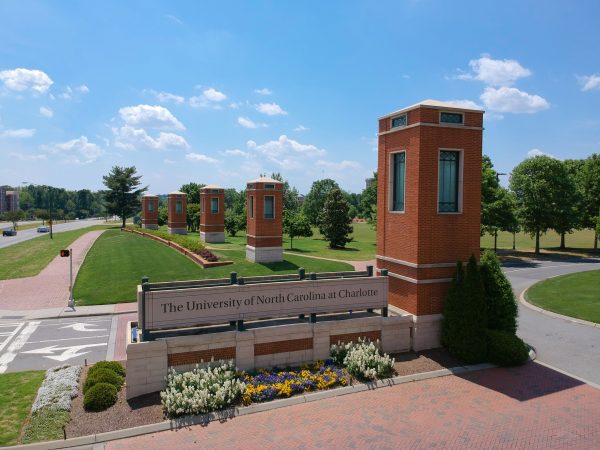2023 NSF Graduate Research Fellowship Program awards announced

Two current UNC Charlotte students and two alumni have received a National Science Foundation Graduate Research Fellowship Program (NSF GRFP) award.
Megan Mitchem ’21, a Ph.D. student in biological sciences, will continue working in the Truman Lab on campus, using her NSF GRFP award to study the link between post-translational modification of the molecular chaperone Hsp70 and cellular metabolism.
“I am the first person in the Truman Lab to receive funding from the NSF,” said Mitchem. “This year, I also received an honorable mention for the Ford Foundation Predoctoral Fellowship. These successes give me more insight into how to help others in preparing their scholarship applications. I want to assist as many people as I can to excel in science.”
Mitchem’s UNC Charlotte journey, “Seeing Science,” was recently featured in the UNC Charlotte Magazine and online.
My Vuong, a senior chemistry honors student with double minors in math and biology, who worked with Christopher Bejger, associate professor of chemistry, will graduate on Friday, May 12. She will continue her education as a Ph.D. student in chemistry at UC Berkeley, where she will use the NSF GRFP award to conduct research about either metalloprotein with applications in drug discovery to treat neurodegeneration, cancer and metabolic disorders or materials such as metal-organic framework (MOF) with applications in energy storage and catalysis.
“This award inspires me to continue researching, encouraging underrepresented students and women to participate in STEM and communicating science to a broader public,” said Vuong. “I am proud to be the first person in my immediate family to graduate college and pursue a Ph.D.”
Taylor Conway received a bachelor’s degree in bioinformatics from UNC Charlotte in 2021. She is a Ph.D. student in ecology and evolutionary biology at the University of Kansas.
Matthew Elardo received bachelor’s degrees in biology and chemistry from UNC Charlotte in 2021. He is a Ph.D. student in organic chemistry at the University of Washington.
GRFP is considered one of the marquee programs for the NSF. Established in 1952, the program helps students in NSF-backed STEM disciplines pursue research-based master’s and doctoral degrees at accredited U.S. institutions. Fellows receive a three-year annual stipend of $37,000 along with a cost-of-education allowance. They also benefit from professional development and research opportunities through the program. The NSF chose about 2,500 winners for the 2023 term.